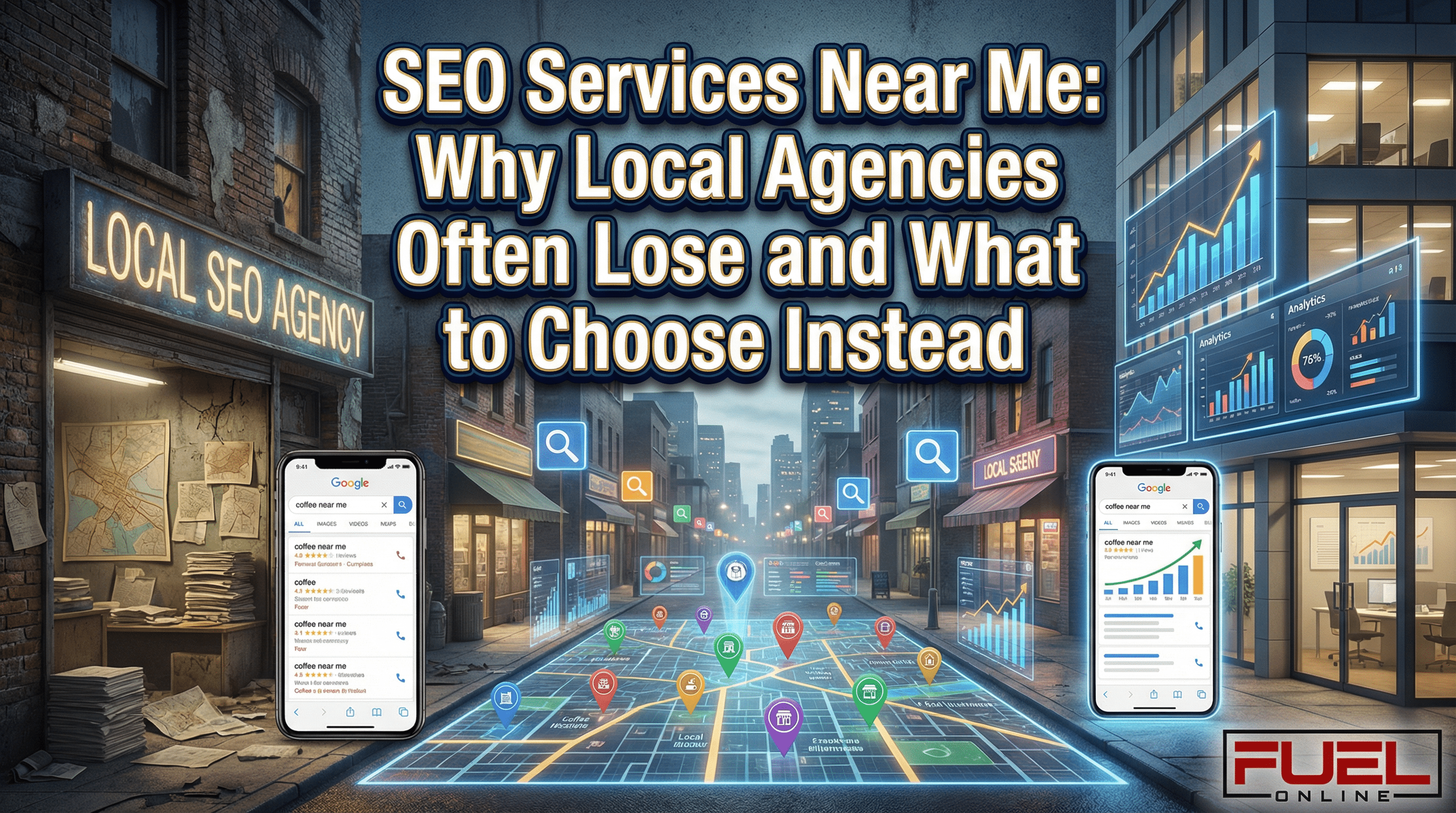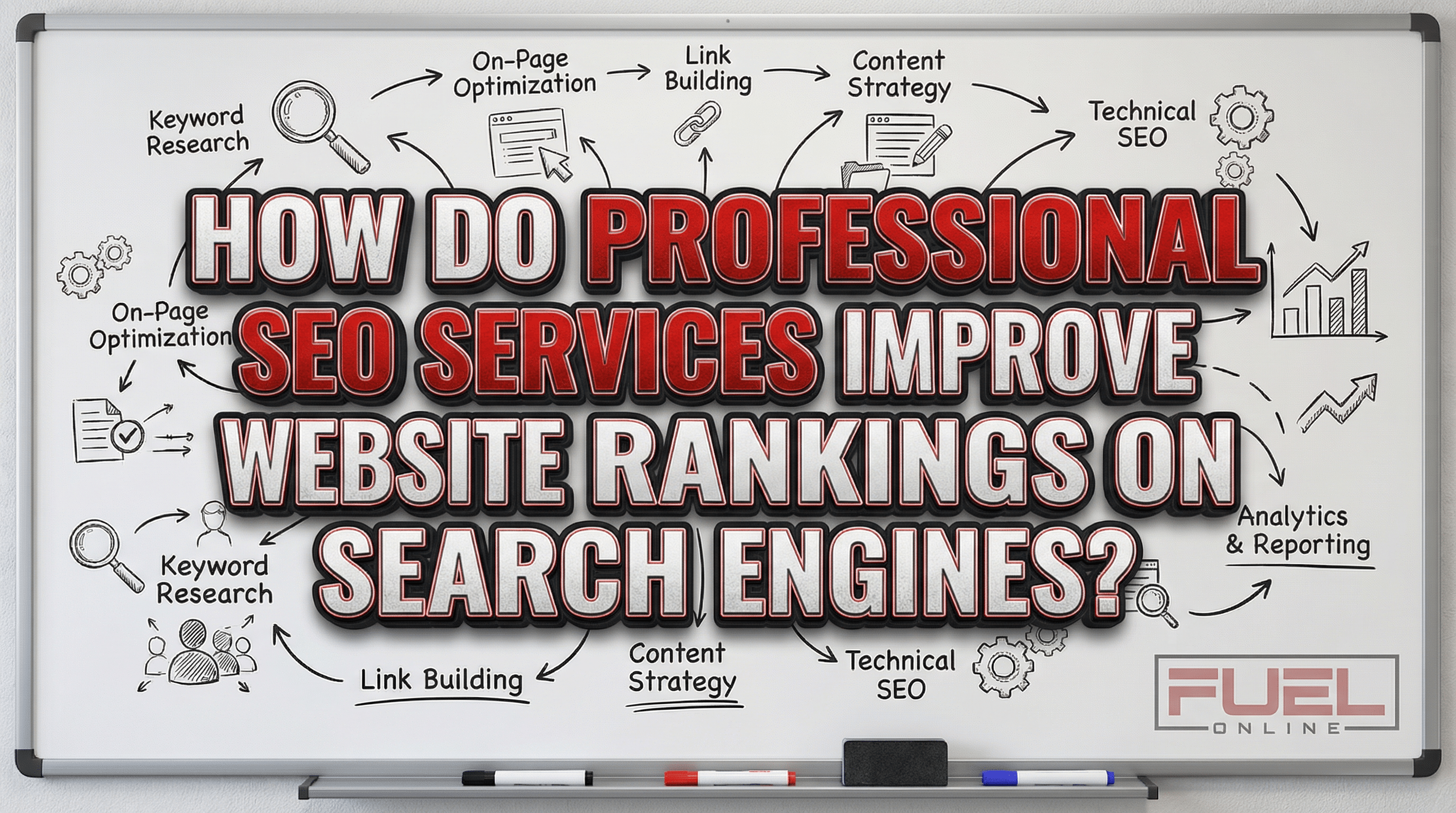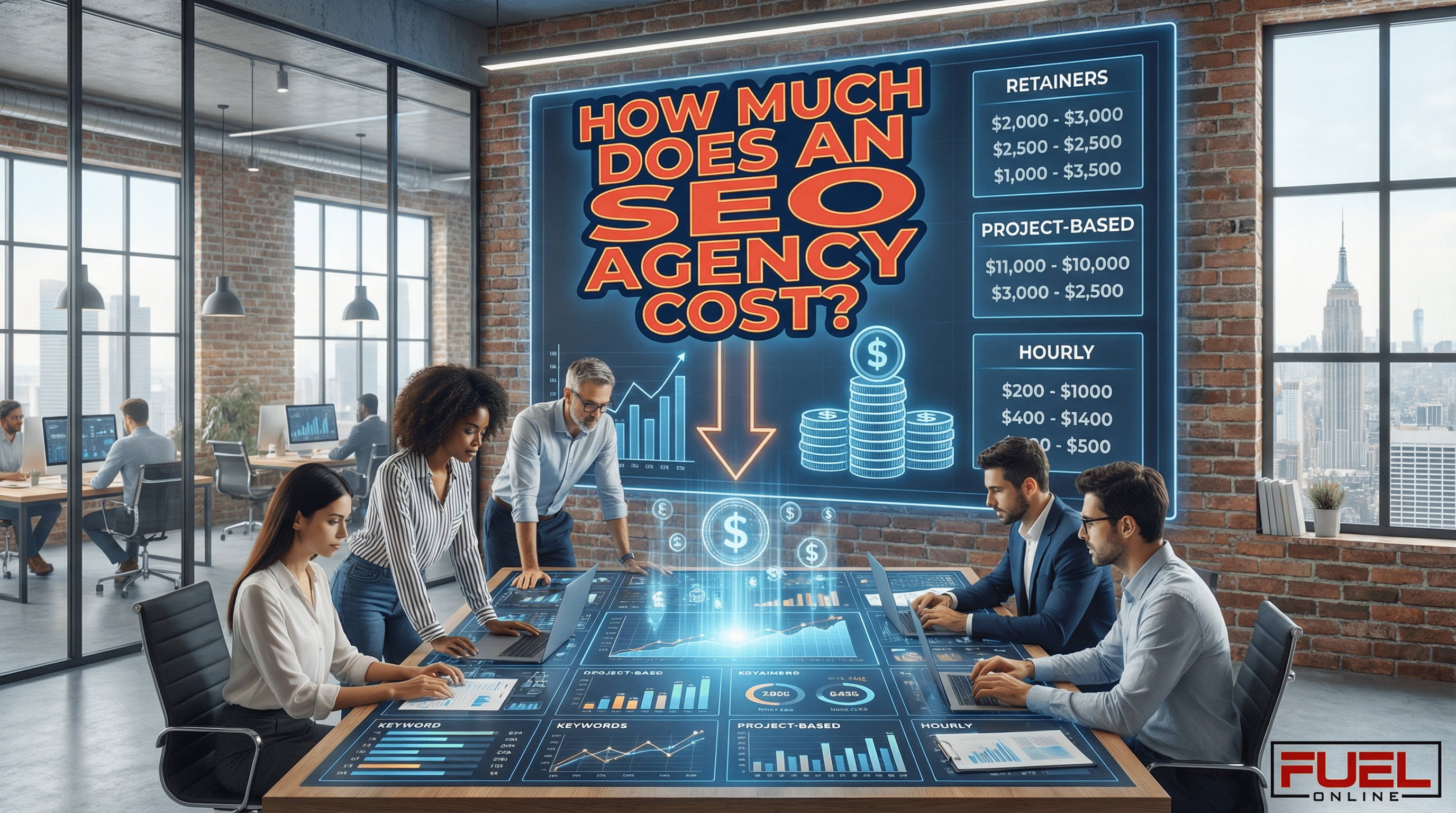At Fuel, we’ve seen firsthand how organic SEO can transform businesses online. It’s the cornerstone of sustainable digital growth, offering a cost-effective way to boost visibility and attract qualified leads.
Unlike paid advertising, organic SEO focuses on earning top search engine rankings through high-quality content and optimized web pages. This approach not only drives traffic but also builds lasting credibility with your audience.
What Is Organic SEO?
The Foundation of Digital Visibility
Organic SEO optimizes websites to rank higher in search engine results pages (SERPs) without paid ad placement. This fundamental digital marketing practice improves site visibility and attracts qualified traffic naturally. Organic results appear lower on the page compared to paid search ads, which are displayed at the top of search results and include a tag indicating they are advertisements.
The Dominance of Organic Search
BrightEdge reports that 68% of online experiences start with a search engine. This statistic highlights the necessity of a strong organic presence. High rankings for relevant keywords increase the likelihood of capturing potential customers’ attention during active searches.
Organic SEO vs. Paid Search: A Long-Term Investment
While paid search offers immediate visibility, organic SEO provides enduring benefits. Paid ads cease to generate traffic once payment stops, but organic rankings can continue to drive visitors for extended periods after content optimization.
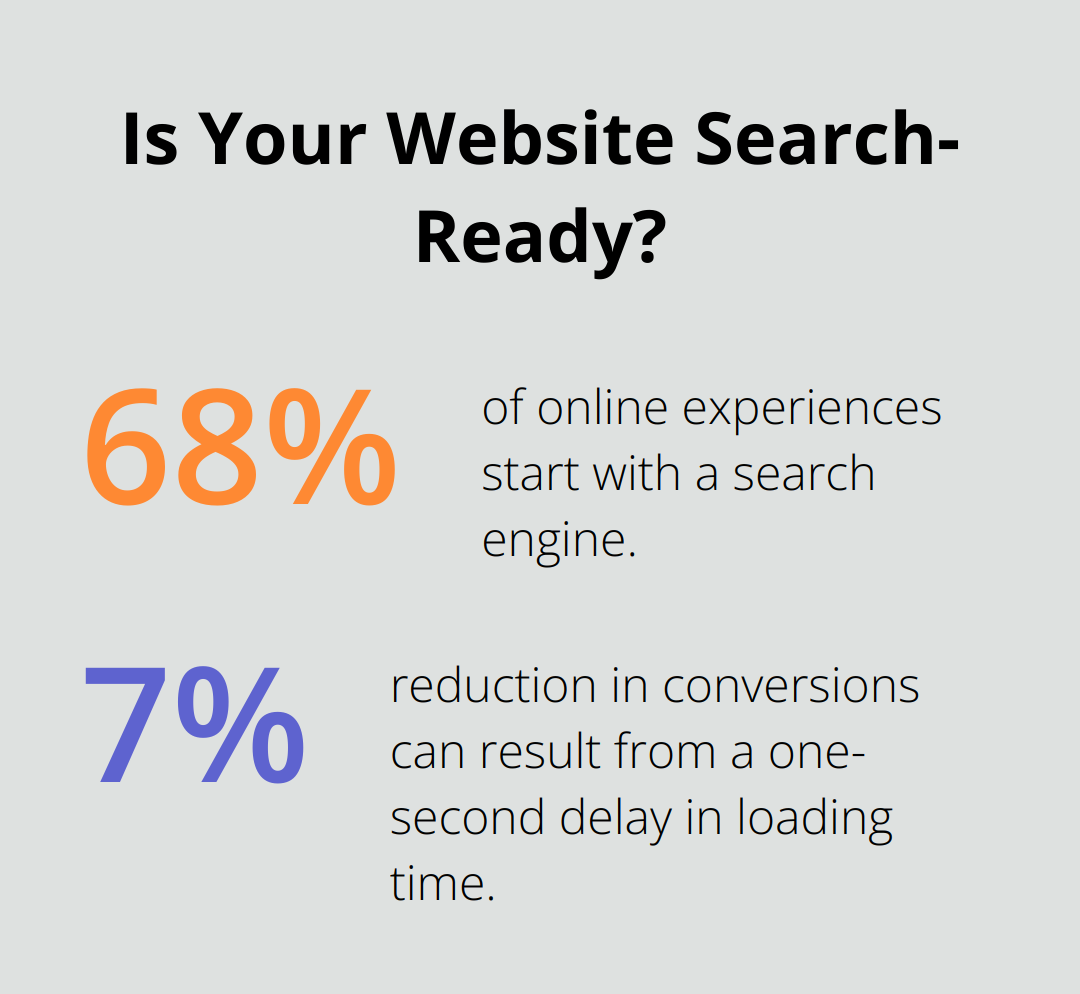
Organic results often outperform paid ads in click-through rates (CTRs). FirstPage notes that the first organic result in Google search boasts a CTR of 39.8%, significantly surpassing lower positions and most paid advertisements.
Essential Components for Organic SEO Success
- Keyword Research: Tools like Google Keyword Planner or Ahrefs help identify high-impact keywords that align with user intent.
- On-Page Optimization: Enhance website meta tags, headers, and content to match target keywords and provide user value.
- Technical SEO: Ensure site crawlability, fast loading speeds, and mobile-friendliness. Akamai’s research shows that a one-second delay in loading time can reduce conversions by 7%.
- Content Creation: Produce high-quality, informative content that addresses user needs. Semrush finds that long-form content (exceeding 3,000 words) attracts three times more traffic and boosts engagement metrics.
- Link Building: Acquire authoritative backlinks to enhance site credibility. Quality links from reputable sources reinforce authority in search engines’ eyes.
The Road to Sustainable Growth
Organic SEO requires consistent effort and adaptation to algorithm changes. However, the potential for increased visibility, credibility, and sustainable traffic makes it a valuable investment for online business growth.
As we move forward, let’s explore the tangible benefits that organic SEO brings to businesses, from cost-effectiveness to improved user experience and higher conversion rates.
Why Organic SEO Drives Long-Term Success
Cost-Effective Marketing Strategy
Organic SEO offers unparalleled cost-effectiveness compared to paid advertising. While paid ads require continuous investment, organic SEO builds momentum over time. Search Engine Journal reports that 49% of marketers consider organic search the best ROI among marketing channels. This statistic underscores the long-term benefits of SEO investments.
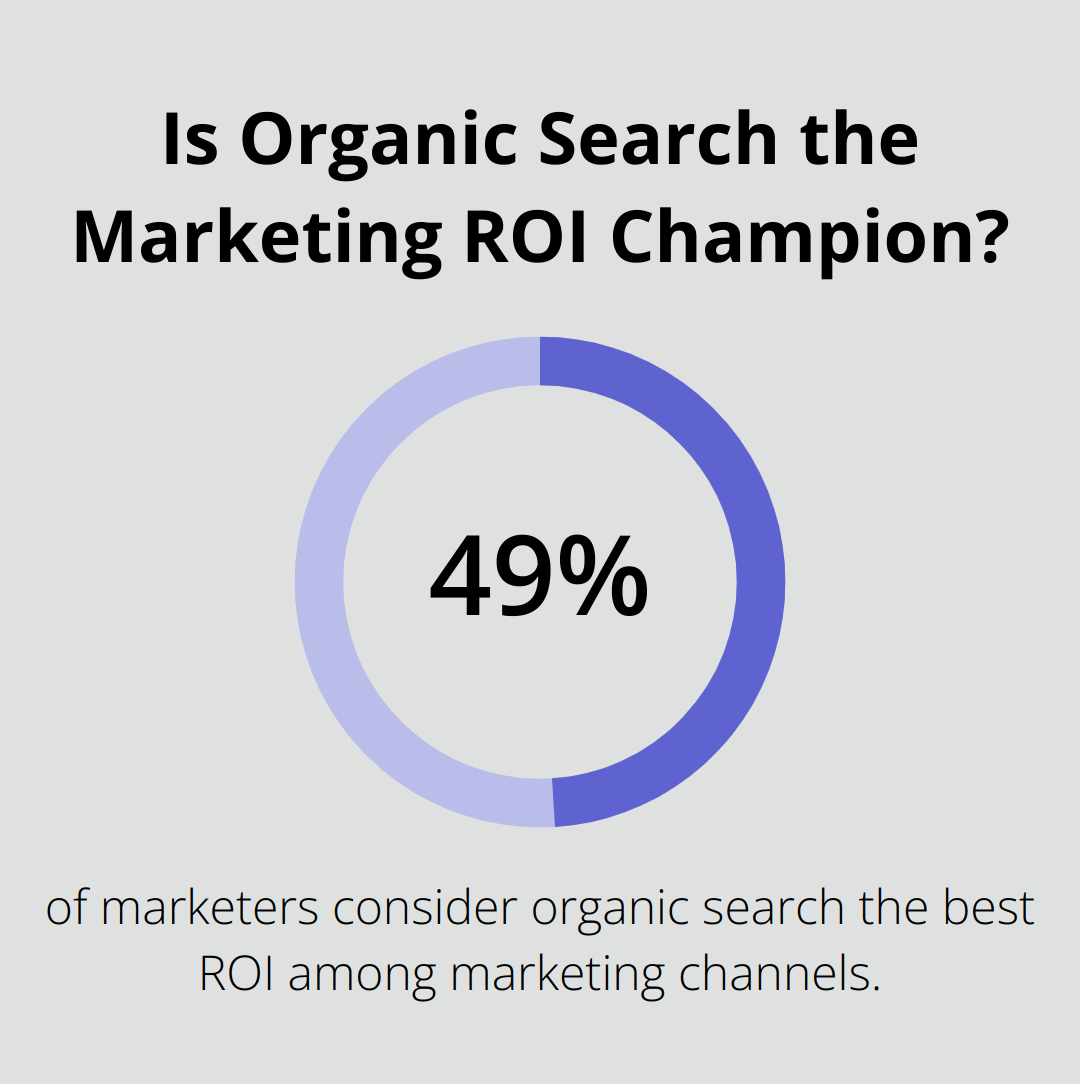
A well-optimized blog post can continue to drive traffic for years, whereas a PPC campaign stops the moment you stop paying. Over time, this translates to significant cost savings and a steady stream of potential customers.
Trust and Credibility Boost
Organic search results earn more trust than paid advertisements. Users often skip past ads, focusing on organic listings. This behavior stems from the belief that top-ranking organic results provide more reliable and relevant information.
BrightEdge reports that organic search accounts for 53.3% of all trackable website traffic. This high percentage indicates that users prefer to click on organic results, viewing them as more credible sources of information.
To capitalize on this trust factor, create high-quality, informative content that addresses user needs. Regular content updates maintain relevance and authority in your industry.
Enhanced User Experience
Effective SEO practices lead to improved user experience. Search engines like Google prioritize websites that offer fast loading times, mobile responsiveness, and easy navigation. These factors not only boost your search rankings but also keep visitors engaged on your site.
A study by Akamai found that a 100-millisecond delay in website load time can hurt conversion rates by 7%. This statistic highlights the direct link between technical SEO improvements and business outcomes.
Mobile optimization takes priority, as Google’s mobile-first indexing uses your site’s mobile version as the benchmark for ranking. Ensure your website responds well, loads quickly on mobile devices, and offers a seamless user experience across all platforms.
Sustainable Traffic Growth
Organic SEO provides a foundation for sustainable traffic growth. Unlike paid advertising, which stops generating traffic when you stop paying, organic search results continue to attract visitors long after you’ve optimized your content.
Data from BrightEdge shows that organic search drives 1000% more traffic than organic social media. This stark difference emphasizes the power of SEO in generating consistent, long-term traffic to your website.
To harness this potential, focus on creating evergreen content that remains relevant over time. Update and repurpose your best-performing content to maintain its search engine visibility and continue attracting new visitors.
As we move forward, let’s explore the practical steps to implement an effective organic SEO strategy that will set your business on the path to sustainable online growth.
How to Implement a Winning Organic SEO Strategy
Conduct Thorough Keyword Research
Start your SEO journey with comprehensive keyword research. Use tools like Google Keyword Planner, Ahrefs, or SEMrush to identify high-volume, low-competition keywords relevant to your business. Focus on long-tail keywords, which often indicate higher purchase intent. For example, instead of targeting “shoes,” try “comfortable running shoes for flat feet.” This specificity helps you rank better and attracts more qualified leads.
Create In-Depth, User-Focused Content
After identifying target keywords, create content that thoroughly addresses user queries. Google’s BERT update emphasizes understanding user intent, so your content should provide comprehensive answers. Focus on creating authoritative content that covers all aspects of a topic.
Optimize On-Page Elements
On-page optimization remains essential for SEO success. Include your target keyword in your title tag, H1 heading, URL, and throughout your content naturally. Use semantic keywords to provide context and improve relevance. However, avoid keyword stuffing (a practice that can lead to penalties).
Prioritize Technical SEO
Technical SEO forms the foundation of your organic strategy. Ensure your website loads quickly, works well on mobile devices, and has a secure HTTPS connection. Google’s Core Web Vitals are now ranking factors, so pay attention to metrics like Largest Contentful Paint (LCP), First Input Delay (FID), and Cumulative Layout Shift (CLS). Use tools like Google’s PageSpeed Insights to identify and fix technical issues.
Build High-Quality Backlinks
Backlinks remain a critical ranking factor. Focus on earning links from authoritative, relevant websites in your industry. Guest posting, creating shareable infographics, and conducting original research are effective ways to attract quality backlinks. The more high-quality backlinks you have, the higher your website is likely to rank in search results. However, quality trumps quantity (a few links from highly authoritative sites can be more valuable than numerous low-quality links).
Effective SEO strategies aim to increase website traffic, improve user experience, and ultimately drive conversions. By investing in SEO, you can attract organic traffic, which is not only more cost-effective but also likely to result in higher-quality leads.
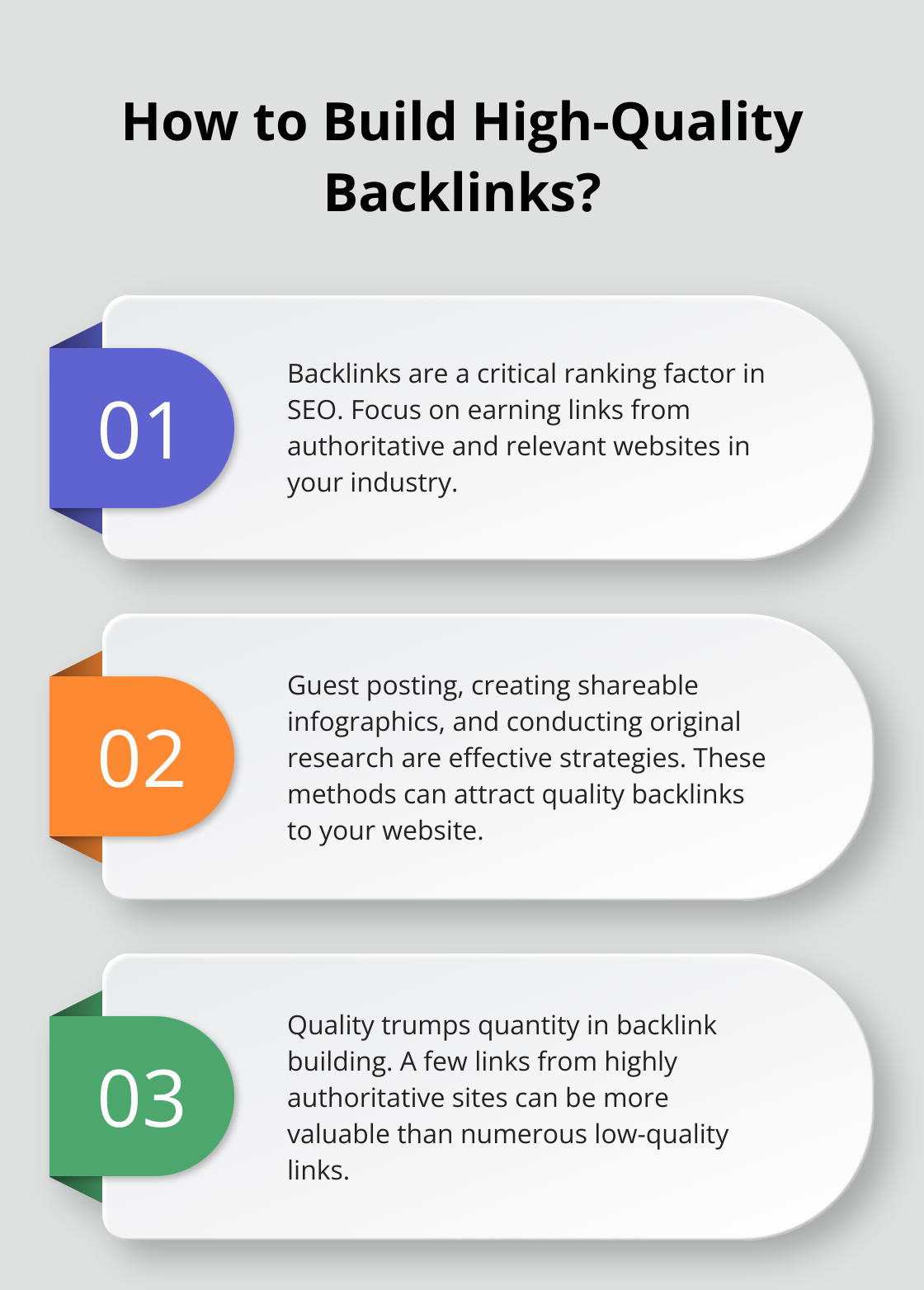
Final Thoughts
Organic SEO stands as the cornerstone of sustainable online growth in today’s digital landscape. It drives consistent traffic and boosts conversions over the long term, unlike paid advertising which stops generating results when payments cease. Organic SEO builds momentum and continues to deliver value long after the initial optimization efforts.
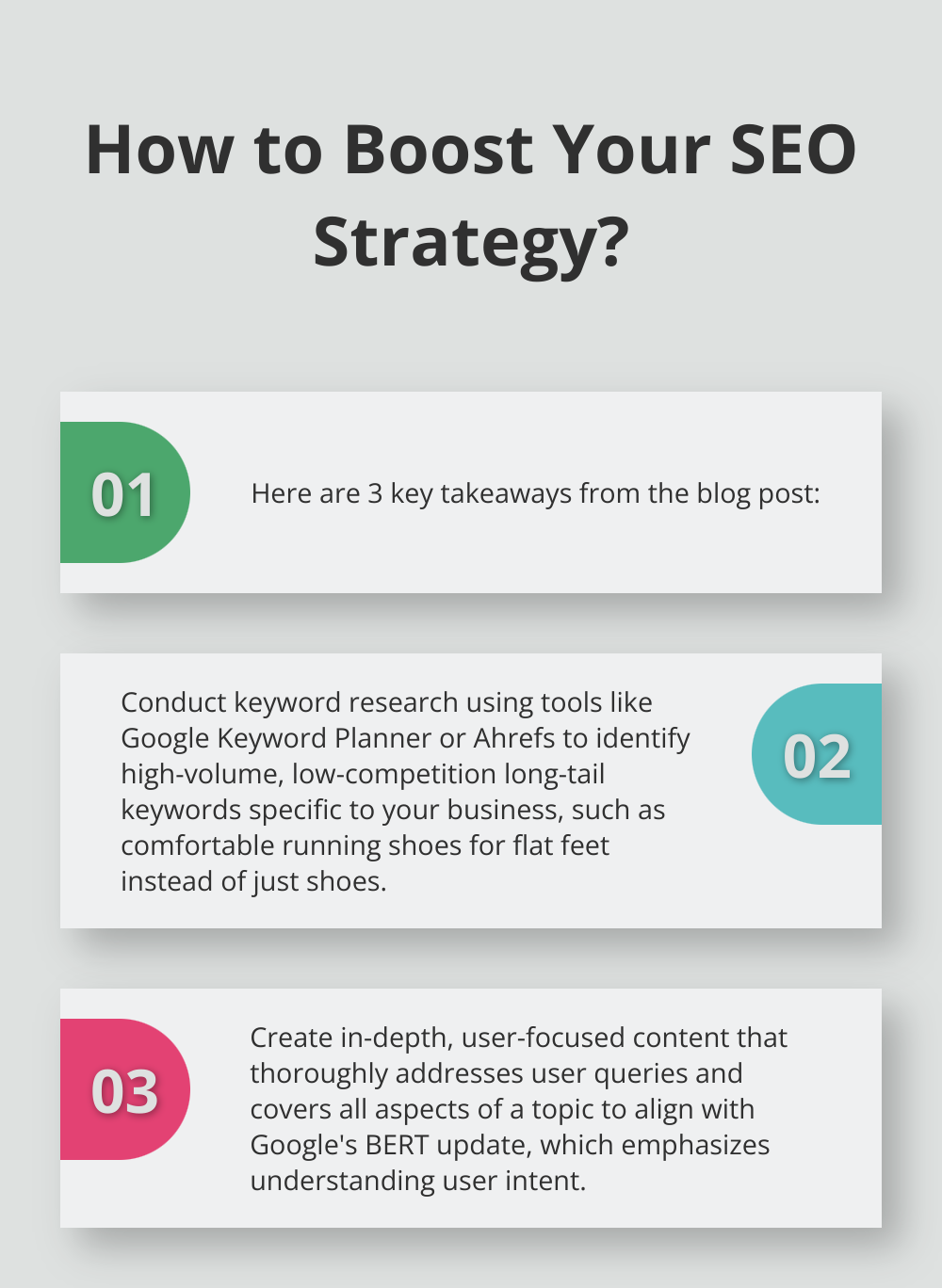
The benefits of investing in organic SEO are clear and compelling. It offers improved search engine rankings, increased visibility, enhanced user experience, and higher conversion rates (all at a cost-effective price point). Businesses that prioritize organic SEO will find themselves at a significant advantage in an increasingly competitive online environment.
We at Fuel Online encourage businesses of all sizes to make organic SEO a central part of their digital marketing strategies. You’ll improve your search rankings and invest in the long-term success and sustainability of your online presence. Organic SEO requires ongoing optimization and improvement, positioning you for lasting success in the digital realm.


